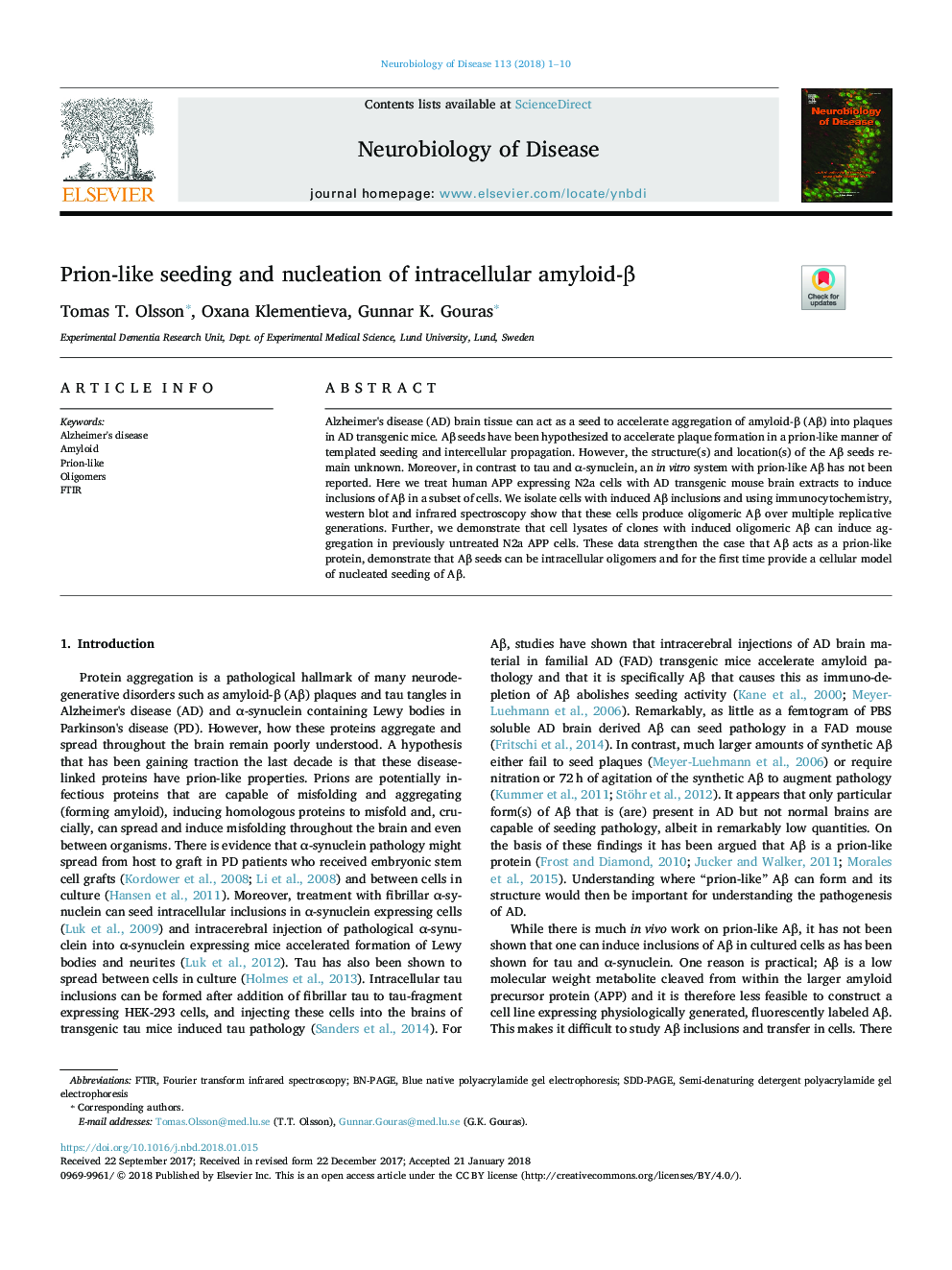| Article ID | Journal | Published Year | Pages | File Type |
|---|---|---|---|---|
| 8686399 | Neurobiology of Disease | 2018 | 10 Pages |
Abstract
Alzheimer's disease (AD) brain tissue can act as a seed to accelerate aggregation of amyloid-β (Aβ) into plaques in AD transgenic mice. Aβ seeds have been hypothesized to accelerate plaque formation in a prion-like manner of templated seeding and intercellular propagation. However, the structure(s) and location(s) of the Aβ seeds remain unknown. Moreover, in contrast to tau and α-synuclein, an in vitro system with prion-like Aβ has not been reported. Here we treat human APP expressing N2a cells with AD transgenic mouse brain extracts to induce inclusions of Aβ in a subset of cells. We isolate cells with induced Aβ inclusions and using immunocytochemistry, western blot and infrared spectroscopy show that these cells produce oligomeric Aβ over multiple replicative generations. Further, we demonstrate that cell lysates of clones with induced oligomeric Aβ can induce aggregation in previously untreated N2a APP cells. These data strengthen the case that Aβ acts as a prion-like protein, demonstrate that Aβ seeds can be intracellular oligomers and for the first time provide a cellular model of nucleated seeding of Aβ.
Keywords
Related Topics
Life Sciences
Neuroscience
Neurology
Authors
Tomas T. Olsson, Oxana Klementieva, Gunnar K. Gouras,
